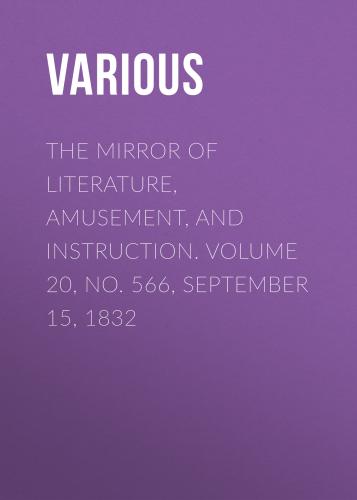Tullia.—In you, I perceive united, the high breeding of a nobleman, and the erudition of a man of (literary) consideration; you would have been worthy of becoming a Roman senator.
Duke.—Ah, madam, far more worthy are you of being at the head of our court.
Mad. de P.—In which case, this lady would prove a formidable rival to me.
Tullia.—Consult your beautiful mirrors made of sand, and you will perceive you have nothing to fear from me. Well, sir, in the gentlest manner in the world, you have informed me that your knowledge (infinitely) transcends our own.
Duke.—I said, madam, that the latter ages are better informed than those which preceded them; at least no general revolution has utterly destroyed all the monuments of antiquity: we have had horrible, but temporary convulsions, and amid these storms, have been fortunate enough to preserve the works of your father, and of some other great men: thus, the sacred fire has never been utterly extinguished, and has in the end produced an almost universal illumination. We despise the barbarous scholastic systems, which have long had some influence among us, but revere Cicero and all the ancients who have taught us to think. If we possess other laws of physics than those of your times, we have no other rules of eloquence, and this perhaps may settle the dispute between the ancients and moderns.
(Every one agreed with the duke. Finally they went to the opera of Castor and Pollux, with the words and music of which, Tullia was much gratified, and she acknowledged such a spectacle to be extremely superior to that of a combat of gladiators.9)
Great Marlow, Bucks.
NEW BOOKS
THE YEAR OF WATERLOO
[In continuation of our extracts from the very amusing Private Correspondence of a Woman of Fashion are the following incidents of this memorable era.]
Конец ознакомительного фрагмента.
Текст предоставлен ООО «ЛитРес».
Прочитайте эту книгу целиком, купив полную легальную версию на ЛитРес.
Безопасно оплатить книгу можно банковской картой Visa, MasterCard, Maestro, со счета мобильного телефона, с платежного терминала, в салоне МТС или Связной, через PayPal, WebMoney, Яндекс.Деньги, QIWI Кошелек, бонусными картами или другим удобным Вам способом.
